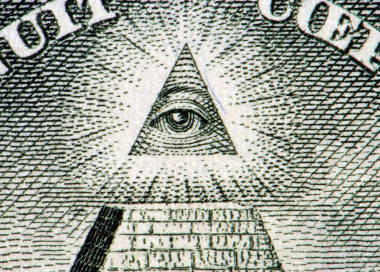 A remarkable bit of FOIA lore from Harper’s, in a post on the Pentagon vs. WikiLeaks (the latest fight is apparently about what Wikileaks says is decrypted video of an airstrike):
A remarkable bit of FOIA lore from Harper’s, in a post on the Pentagon vs. WikiLeaks (the latest fight is apparently about what Wikileaks says is decrypted video of an airstrike):
Which young Illinois legislator, who would become a rising, polarizing star in American and world politics in the 2000s, was a fervent advocate of the right to access government records?
In a debate over the Freedom of Information Act, a young Congressman from Illinois spoke in favor of freeing public records:
[It] “will make it considerably more difficult for secrecy-minded bureaucrats to decide arbitrarily that people should be denied access to information on the conduct of government or to how a …. government official is handling his job. Public records, which are the evidence of official government action, are public property, and there should be a positive obligation to disclose this information upon request.”
The same Congressman also said in that debate:
“We have said that ours is a government guided by citizens…From this it follows that government will serve us well only if the citizens are well informed.â€
A final clue: To the White House, who opposed the bill, the Illinois congressman stated (PDF):
The unanimous action after years of delay [in passing FOIA] results from the growing size and complexity of the federal government, from its increased role in our lives, and from the increasing awareness of Americans of the threat involved in government secrecy on vital records effecting their fate.
With the continuing tendency toward managed news and suppression of public information that the people are entitled to have, the issues have at last been brought home forcefully to the public.
The name of the gentleman from Illinois: Donald Rumsfeld.
At the time of the 1966 debate and passage of FOIA, Rumsfeld was in the opposition party; the Republicans hoped that FOIA, besides ostensibly improving the operations of government with transparency, would uncover information that would embarrass Pres. Lyndon Johnson. Johnson so opposed FOIA that he refused to have a signing ceremony for the bill and tacked on a signing statement (PDF) that undercut the law based on national security concerns.
A decade after FOIA’s passage, Rumsfeld was President Ford’s chief of staff. He, along with Dick Cheney and Antonin Scalia, convinced Ford to veto amendments that were intended to strengthen FOIA. The veto was overridden in the House, though, by a margin of 371-31.
About two decades after that, Rumsfeld would become the chatty, document-divulging, and otherwise champion of transparency and Secretary of Defense who the press would come to adore and cherish.
In his resignation letter to President Bush, Rumsfeld wrote that how his only regret was that he did not do even more to keep government free and open. Oh wait…